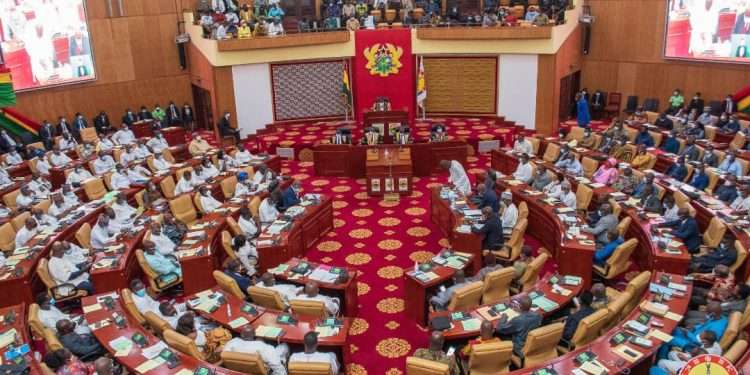The Speaker of Parliament, Alban Bagbin, has expressed strong disapproval over the Majority in Parliament’s decision to recall the House from its recess, accusing them of acting in bad faith.
The recall, which took place under the pretext of addressing urgent business, has been met with criticism from the Speaker, who questioned the true necessity of the items on the agenda.
In his address to the House upon its recall, Speaker Bagbin did not hold back his disappointment. He pointed out that many of the issues listed for discussion were not of an urgent nature, and that the sudden recall was both unexpected and unjustified.
“Despite the efforts of the house, some businesses could not be completed, and I indicated to the house my no objection to the house being recalled to mid-September under Article 112(3).
“To exercise this option immediately a day after this adjournment is, to say the least, unfortunate and in bad faith.”
Alban Bagbin, Speaker of Parliament
Although Speaker Bagbin criticized the timing and intent behind the recall, he acknowledged that, by law, he had no choice but to summon Parliament once Article 112(3) of the 1992 Constitution was triggered.
Article 112(3) stipulates: “Notwithstanding any other provision of this Article, fifteen percent of Members of Parliament may request a meeting of Parliament, and the Speaker shall, within seven days, after the receipt of the request, summon Parliament.”
While recognizing the constitutional mandate, Speaker Bagbin raised concerns about the frequent invocation of Article 112(3) by a section of Parliament. He emphasized that although the constitutional provisions are clear, there should be a broader consideration of the context in which they are applied.
The Speaker cautioned that the continuous use of Article 112(3) to recall Parliament could undermine the overall functioning of the legislative body.
Call for Legislative Reforms

In light of the concerns raised, Speaker Bagbin suggested that Parliament should consider legislating preconditions under which Article 112(3) could be invoked.
Such legislation, he argued, would prevent the article from being misused as a tool to keep Parliament in continuous session, which could, in turn, hinder MPs from fulfilling other constitutional duties.
The Speaker’s remarks pointed to a growing unease within the legislative body regarding the balance between the need for parliamentary oversight and the practicalities of governance.
With the 8th Parliament already facing numerous challenges, including political polarization and the need for effective legislative action, the frequent use of Article 112(3) could exacerbate existing tensions.
The recall of Parliament was initiated by the Majority Leader, Afenyo Markin, who invoked Article 112(3) of the Constitution and Order 53(2) of the Standing Orders of Parliament. The Majority argued that the recall was necessary to address several urgent matters, including the approval of loans and taxes critical to the functioning of the government.
In defense of the recall, the Majority Leader emphasized that the issues at hand were of national importance and required immediate attention. He pointed out that the government’s ability to secure financing and implement tax policies could be compromised if Parliament did not act swiftly.
The clash over the recall of Parliament is symptomatic of the broader challenges facing Ghana’s 8th Parliament. As the nation grapples with economic pressures and political divisions, the legislative body is increasingly becoming a battleground for competing interests.
The Speaker’s call for legislative reforms to regulate the use of Article 112(3) may gain traction as MPs seek to ensure that parliamentary procedures are not exploited for political gain.
READ ALSO: Ghana Set to Raise Cocoa Farmgate Price by Nearly 45%: A Strategic Move Amid Global Cocoa Deficits




















